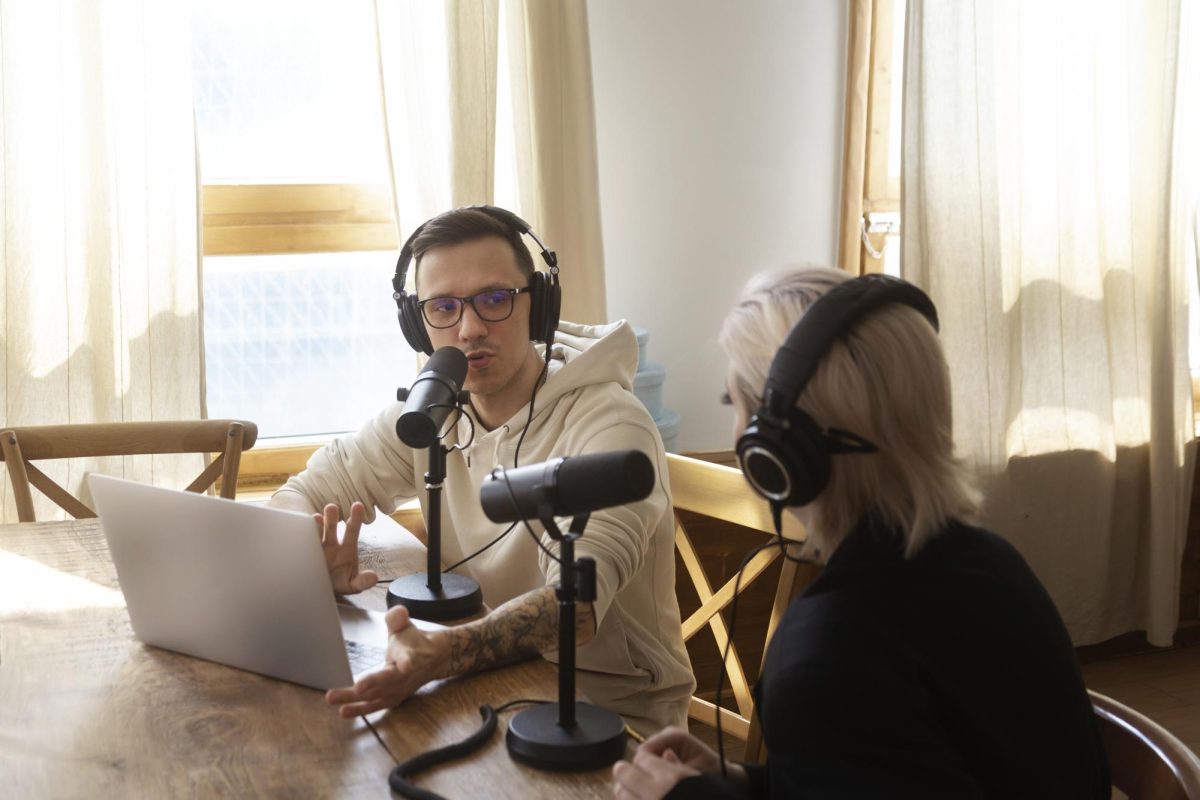Overconsumption is a cycle that finds itself in many aspects of our cultural trends, not only the specific ones that often include shopping. One that has fallen victim to this drift and has been becoming more and more prevalent on social media platforms is the use of podcasts, an outlet that has been gaining popularity since 2004.
My complaint does not stem from the simple fact that recently more people have adopted this platform type. However, I do have an issue with certain individuals or groups that have decided to partake in it solely because of its trending nature but have nothing good to say.
There is not a singular topic that a podcast must stick to, some are based on discussing news, mental health, crimes, and entertainment. Even with this wide array of options, influencers are still managing to make a joke out of something that was once a positive way to channel information.
Though not every podcaster has resorted to this method, the unfortunate truth is that it has been ruined for all. Podcasts such as the “Talk Tuah” hosted by popular meme “star” Hailey Welch, “Plan Bri” hosted by Brianna Chickenfry and Grace O’Malley, and the “LOL Podcast” hosted by Harper Zilmer, Cash Baker, and Maverick Baker are to blame for this downfall.
There are multiple reasons why these podcasts have no substance and increase the amount of mental decay that the older generations have begun bashing Gen Z for. “Talk Tuah” has put most of the attention on this topic, as the semi-resent meme has snowballed into another.
This podcast has brought a community together, but not for the reason most might think. Though there was a mass amount of hate that internet memes received when it was initially created, the culture shifted into more of a “love-hate” relationship, turning it into something to joke about.
This is why the podcast centered around it has gotten so popular, though people have plastered the internet with comments that talk about how life-changing and philosophical the podcast is there is a general understanding that it’s all a part of an “inside joke”.
This might not be easily understood by individuals who don’t participate in the same humor, but if they were to take a chance on “Talk Tuah” it would be clear that the comments were not exactly truthful. I know it was personally easy to figure this out after watching around ten minutes of one of the episodes, though I already knew the comments weren’t serious. I was interested in seeing what the podcast entailed.
I was astonished to find out that I could not find out the topics of their conversations, and the reason behind this is that there was none! The hosts were genuinely talking to each other about nothing, simply exchanging words with no meaning behind them, nothing interesting, and any “facts” brought up were obvious misinformation that further led the conversation astray.
Though this might be slightly annoying, and it overshadows podcasts that have genuine conversations and good chemistry, it isn’t as troubling as other factors brought on by these unnecessary factors.
Misinformation is a dangerous effect that podcasts like these cause, they push their opinions as facts and argue them to an audience that will follow them blindly. Recently, the “Plan Bri” podcast went on an upsetting rant discussing the Menendez brother’s case where they recounted false information and spoke about the incident in an extremely insensitive manner. It was obvious they didn’t know what they were talking about.
Even if it sounds like a fun idea to start a podcast with your friends, it might not be the right route, not everyone needs a podcast.

